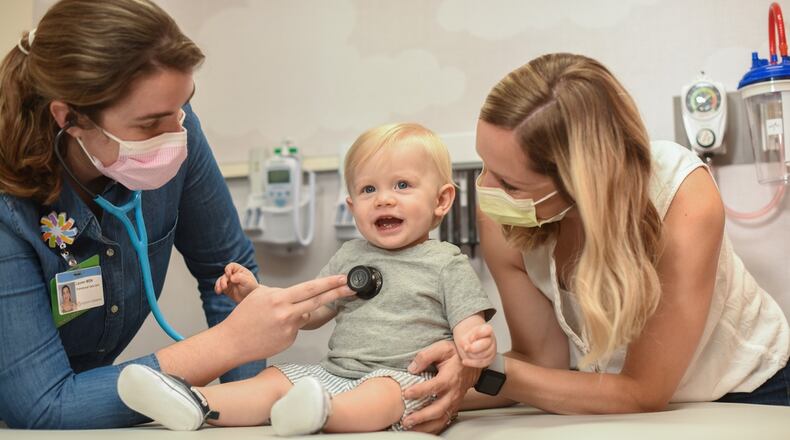Ambient AI refers to AI technology that doesn’t need explicit user interaction in order to function as it collects information to generate reports and documentation.
“The question for health systems is not really, ‘should we do ambient AI? – because ambient will very quickly be the expected functionality for providers,” said J.D. Whitlock, chief information officer at Dayton Children’s. “The question is, who is the best strategic partner for ambient?”
Abridge’s ambient AI software, which gets integrated with the hospital’s electronic health record system, is designed to take medical conversations and generate accurate, structured documentation during patient appointments.
“We chose Abridge because of the quality of the AI-generated notes, their depth of integration with EPIC, the hospital’s EHR (electronic health record) system, and their aggressive product roadmap,” Whitlock said.
The Abridge AI utilizes what it calls a Contextual Reasoning Engine, an AI architecture that produces more clinically useful and billable notes at the point of care, Dayton Children’s said.
The software supports more than 50 medical specialties and over 28 languages. It can be utilized in outpatient clinics, emergency departments and inpatient settings.
Abridge is committed to patient privacy and has a robust policy outlining practices to ensure data is secure and patients are empowered with their medical information, according to the software company.
“As every parent knows, pediatric clinicians face unique challenges when seeing patients, including fidgety and crying patients,” said Dr. Shiv Rao, CEO and Founder of Abridge and a practicing cardiologist in Pittsburgh. “That’s why we designed Abridge’s AI to understand the subtleties of pediatric care, enabling the heroes who heal our children to focus on caring for kids and their families.”
The integration of Abridge at Dayton Children’s comes at a time when health systems nationwide are searching for solutions to combat clinician burnout and improve care delivery efficiency, the hospital said, and this kind of technology can help reduce the workload for doctors and nurses.
Dayton Children’s is an independent, freestanding children’s hospital, providing care for more than 400,000 children each year across 20 counties in Ohio and eastern Indiana. The hospital has two campuses, Dayton and Springboro, and more than 15 care sites including facilities in Troy, Beavercreek and Kettering.
About the Author

